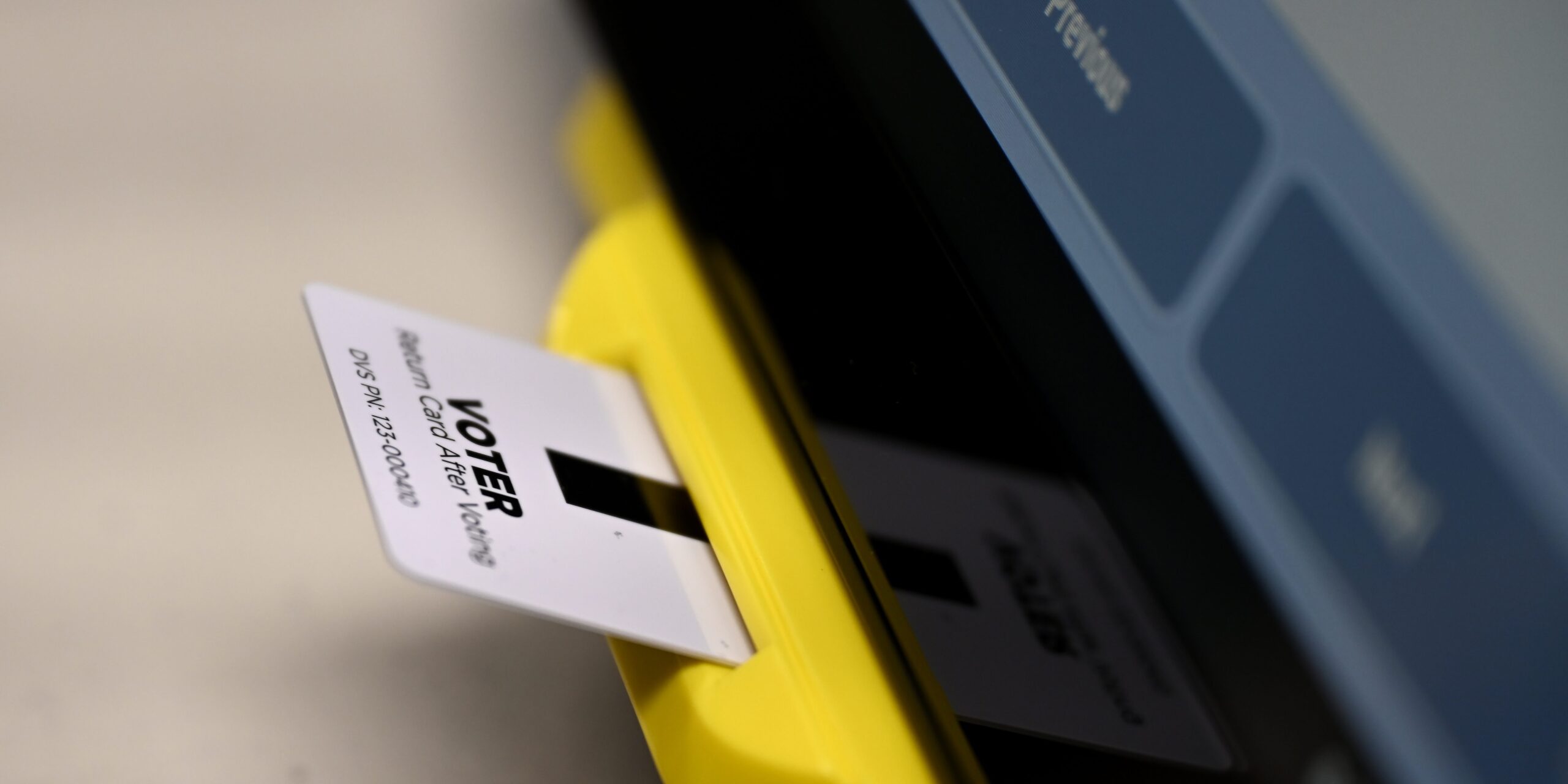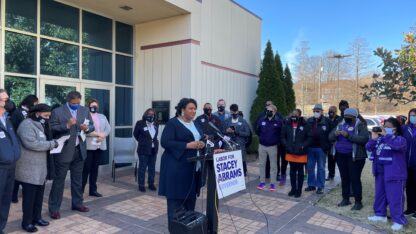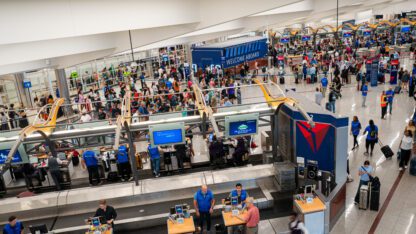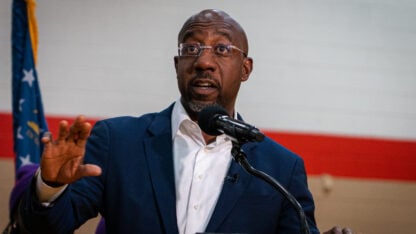Whether you lived here for decades or are a newcomer, voting in Georgia can be complicated.
“There are so many elections. There are so many dates. It’s so confusing,” says Vyanti Joseph of Cobb County.
Keeping her community informed pushed her to become involved with the group They See Blue. The national organization mobilizes Democratic South Asian voters. That’s voters from countries including India, Pakistan and Nepal.
Anjali Enjeti is co-founder of the Georgia chapter, which started in 2019.
“There’s just a really steep learning curve to be a voter in this state,” says Enjeti. “And if you are a relatively recent immigrant who is new to being a citizen in the U.S. or have some sort of language difficulties, it just makes it all that much harder.”
According to the Pew Research Center, Asian Americans are the fastest-growing segment of eligible voters.
As early voting gets underway in Georgia, and the presidential election stretches into its final weeks, there’s a type of voter both parties hope to rely on — those in the suburbs. In addition to the presidential race, two U.S. Senate seats are up for grabs in Georgia.
Counties such as Cobb and Gwinnett are not the hubs of white conservatism they once were.
In the 2018 governor’s race, 51% of suburban voters cast their ballots for Democratic candidate Stacey Abrams. That same year, voters in Cobb as well as North Fulton and parts of DeKalb sent Democrat Lucy McBath to the U.S. House of Representatives for Georgia’s 6th Congressional District. A seat once held by Republican Newt Gingrich.
Anu Banerjee has lived in Cobb County for more than 30 years. She says she never thought she’d see the day the county would go from ruby red to blue.
“I get goosebumps just thinking about it,” she says. “I had to teach my children you’re brown, your mother has an accent, we have strange names. When your friends come over, they’re going to smell curry in the house. And, of course, once they did, they never left the damn house.”
During a Zoom meeting with other South Asian women who live in the suburbs, many were familiar with Banerjee’s experience of sharing their culture with neighbors.
But that doesn’t mean living in Georgia’s suburbs feels welcoming.
Though some of these women have lived in metro Atlanta for decades, some have seen an increase in xenophobia since 2016.
Zeenat Syed lives in Forsyth County — a county that has one of the largest increases in its Asian population in the country.
It’s also a county that once forcibly removed African Americans in 1912.
This racist history is something Syed can’t ignore.
“I’m always perpetually worried about my family members going to certain parts of the county and basically being attacked one way or another,” Syed says.
Fairyal Maqbool-Halim is Canadian and moved to North Fulton from Michigan about 12 years ago. She was fine being a permanent resident in the U.S. for nearly 30 years.
“And then 2016 prompted me to go get my citizenship within three months,” she says.
It also pushed her to get involved in local politics.
The changing demographics in the suburbs also doesn’t mean there’s been a change in local leadership.
Having Kamala Harris on the Democratic presidential ticket is a great start for these members of They See Blue.
The Georgia chapter has backed candidates, including Raphael Warnock for U.S. Senate and incumbent Lucy McBath for the U.S. House of Representatives. And they’re also behind Mokah Johnson, who is running for Georgia House District 117.
But they want more representation on the local level.
Vyanti Joseph, of Cobb, knows that county commissions and school boards affect her and her children’s daily lives.
“When I talk about who I want on there, I want people who look more like me so they understand me,” Joseph says. “And even if you don’t look like me, you have to understand my issues.”
There’s been some growth in the number of women of color running for office in Georgia, and it’s starting to trickle down to the local level. One sign of that change might be that both Cobb and Gwinnett counties have women of color on the November ballot for chair of their county commissions.
_____________________________________________________________________________
Behind This Story
Roxanne Scott produced this story as part of the America Amplified initiative using community engagement to inform and strengthen local, regional and national journalism. America Amplified is a public media initiative funded by the Corporation for Public Broadcasting.
Roxanne Scott, along with producer Maria White Tillman and editor Susanna Capelouto, held two virtual events to learn more about women of color voters in metro Atlanta. This was our first event that spoke to South Asian women voters who are members of They See Blue, an organization that mobilizes Democratic South Asian voters. Speaking to this group gave us insight on the political and demographic change of metro Atlanta all while both parties are vying suburban voters.









